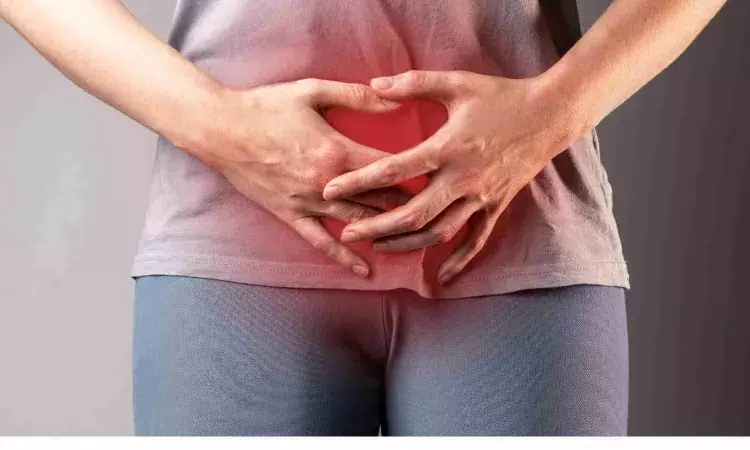- Home
- Medical news & Guidelines
- Anesthesiology
- Cardiology and CTVS
- Critical Care
- Dentistry
- Dermatology
- Diabetes and Endocrinology
- ENT
- Gastroenterology
- Medicine
- Nephrology
- Neurology
- Obstretics-Gynaecology
- Oncology
- Ophthalmology
- Orthopaedics
- Pediatrics-Neonatology
- Psychiatry
- Pulmonology
- Radiology
- Surgery
- Urology
- Laboratory Medicine
- Diet
- Nursing
- Paramedical
- Physiotherapy
- Health news
- Fact Check
- Bone Health Fact Check
- Brain Health Fact Check
- Cancer Related Fact Check
- Child Care Fact Check
- Dental and oral health fact check
- Diabetes and metabolic health fact check
- Diet and Nutrition Fact Check
- Eye and ENT Care Fact Check
- Fitness fact check
- Gut health fact check
- Heart health fact check
- Kidney health fact check
- Medical education fact check
- Men's health fact check
- Respiratory fact check
- Skin and hair care fact check
- Vaccine and Immunization fact check
- Women's health fact check
- AYUSH
- State News
- Andaman and Nicobar Islands
- Andhra Pradesh
- Arunachal Pradesh
- Assam
- Bihar
- Chandigarh
- Chattisgarh
- Dadra and Nagar Haveli
- Daman and Diu
- Delhi
- Goa
- Gujarat
- Haryana
- Himachal Pradesh
- Jammu & Kashmir
- Jharkhand
- Karnataka
- Kerala
- Ladakh
- Lakshadweep
- Madhya Pradesh
- Maharashtra
- Manipur
- Meghalaya
- Mizoram
- Nagaland
- Odisha
- Puducherry
- Punjab
- Rajasthan
- Sikkim
- Tamil Nadu
- Telangana
- Tripura
- Uttar Pradesh
- Uttrakhand
- West Bengal
- Medical Education
- Industry
Higher parity, obesity and depression at the time of delivery linked to bothersome postpartum urinary symptoms: Study

Higher parity, obesity and depression at the time of delivery linked to bothersome postpartum urinary symptoms suggests a study published in the Urogynecology.
Urinary incontinence is a common postpartum morbidity that negatively affects quality of life. This study aimed to identify factors associated with persistent (ie, 12 months postpartum) bothersome urinary symptoms, including stress urinary incontinence (SUI) and urgency urinary incontinence (UUI), and explore their association with mental health in medically underserved communities.
This was a cross-sectional analysis of a prospective study of individuals enrolled into “extending Maternal Care After Pregnancy,” a program providing 12 months of postpartum care to individuals with health disparities. Patients were screened at 12 months for urinary dysfunction, anxiety, and depression using the Urinary Distress Index-6, Generalized Anxiety Disorder-7, and Edinburgh Postnatal Depression Scale, respectively.
Bivariate and multivariable logistic regression analyses were performed for at-least-somewhat-bothersome SUI versus no-SUI, UUI versus no-UUI, and for bothersome versus asymptomatic urinary symptoms, using demographic and peripartum and postpartum variables as associated factors.Results : Four hundred nineteen patients provided data at median 12 months postpartum. Patients were 77% Hispanic White and 22% non-Hispanic Black. After multivariable analysis, SUI (n = 136, 32.5%) was significantly associated with increasing body mass index at the time of delivery and greater depression screening scores.
Fetal birthweight, mode of delivery, degree of laceration, and breastfeeding status were not associated. Urgency urinary incontinence (n = 69, 16.5%) was significantly associated with increasing parity and higher anxiety screening scores. Similarly, participants with urinary symptom bother had significantly greater parity and higher anxiety screening scores. At 12 months postpartum, bothersome urinary symptoms and incontinence were quite common. Since these are treatable, postpartum screening for urinary complaints-and associated anxiety and depression-is essential, as is assisting patients in achieving a healthy weight
Reference:
Bhandari Randhawa, Sonia MD; Rizkallah, Andrea MD; Nelson, David B. MD; Duryea, Elaine L. MD; Spong, Catherine Y. MD; Pruszynski, Jessica E. PhD; Rahn, David D. MD. Factors Associated With Persistent Bothersome Urinary Symptoms and Leakage After Pregnancy. Urogynecology ():10.1097/SPV.0000000000001528, April 30, 2024. | DOI: 10.1097/SPV.0000000000001528
Dr. Shravani Dali has completed her BDS from Pravara institute of medical sciences, loni. Following which she extensively worked in the healthcare sector for 2+ years. She has been actively involved in writing blogs in field of health and wellness. Currently she is pursuing her Masters of public health-health administration from Tata institute of social sciences. She can be contacted at editorial@medicaldialogues.in.
Dr Kamal Kant Kohli-MBBS, DTCD- a chest specialist with more than 30 years of practice and a flair for writing clinical articles, Dr Kamal Kant Kohli joined Medical Dialogues as a Chief Editor of Medical News. Besides writing articles, as an editor, he proofreads and verifies all the medical content published on Medical Dialogues including those coming from journals, studies,medical conferences,guidelines etc. Email: drkohli@medicaldialogues.in. Contact no. 011-43720751


